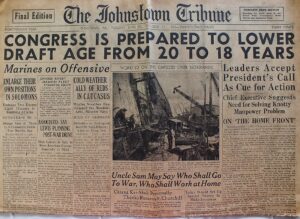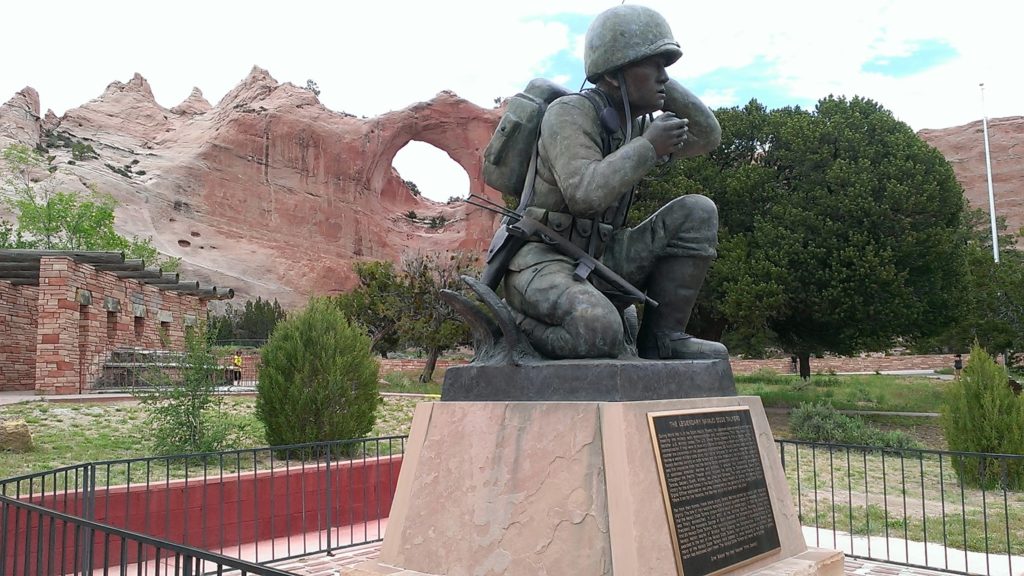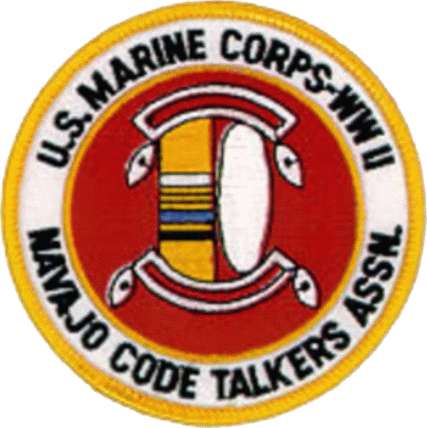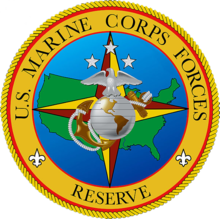minimum draft age was lowered from 21 to 18
Nov 13, 1942

minimum draft age was lowered from 21 to 18
Nov 13, 1942

minimum draft age was lowered from 21 to 18
Nov 13, 1942

minimum draft age was lowered from 21 to 18
Nov 13, 1942

February 23, 1945
six United States Marines raised a U.S. flag atop Mount Suribachi during the Battle of Iwo Jima in World War II
a photograph was first published in Sunday newspapers on February 25, 1945
February 23, 1945
six United States Marines raised a U.S. flag atop Mount Suribachi during the Battle of Iwo Jima in World War II
a photograph was first published in Sunday newspapers on February 25, 1945
February 23, 1945
six United States Marines raised a U.S. flag atop Mount Suribachi during the Battle of Iwo Jima in World War II
a photograph was first published in Sunday newspapers on February 25, 1945
Hundreds of heroic war dogs served in the United States Marine Corps during World War II.
Most were Doberman Pinschers, German Shepherds, Labrador Retrievers and occasionally, a Collie served during the war as sentries, messengers, and scouts.
They also served other roles to the Marines who served with them…devoted friend, confidant, trusted companion.
Fourteen dogs were killed in action and others died from exhaustion, tropical illness, heat stroke, accidents, and anemia from hookworm.
All were buried in Guam
#Doberman
#Doberman_Pincher
#DogsOfWar
https://www.instagram.com/p/BNxyr2iDCB6/?taken-by=gunwebsites
August 14 is National Navajo Code Talkerss Day
we remember and honor these hundreds of courageous men for their service to our country
https://NavajoCodeTalkers.org
On the Navajo Reservation, in Window Rock AZ, there is a statue erected in their honor with a plaque commemorating their service

The Legendary Navajo Code Talkers
During World War II, in the South Pacific Theater, the Japanese were extremely proficient at breaking into military radio communications and transmissions. Thus they were able to decipher U.S. Military codes. The U.S. Armed forces needed to find a secure method of communication if they were to have any chance of defeating a cleaver and intelligent foe. To counter the cleverness of the Japanese cryptographers, 29 Navajo Marines were recruited to devise a secret military code using their native language. By war’s end, there were over 400 Navajo Marines serving as code talkers and the code vocabulary had doubled. So successful was this innovative code that the Marine Corps commanders credited it with saving the lives of countless American Marines and soldiers. It enabled their success engagements throughout the Pacific Theater which included the battles for Guadalcanal, Wake Island, Tarawa, Saipan, Guam, Midway, Iwo Jima, and Okinawa. The code paved the way to early victory for the allied forces in the South Pacific. Major Howard M. Conner, 5th Marine Division Signal Officer stationed in Iwo Jima commented on the gallantry of the Navajo Code Talkers: “Were it not for the Navajos, the Marines would not have taken Iwo Jima.”
Far from their homes, these brave young Navajo Marines served our nation with honor and dignity. The tale of their exploits remained a closely guarded secret for decades in the event that the Navajo Code Talkers unique talents would be needed again. In 1968 the Navajo code was finally declassified. In July 2001, at the National Capital Rotunda, United States President, the honorable George W. Bush, awarded the Congressional Gold Medals to the first 29 Navajo Code Talkers, their surviving spouses or children. In November 2001 at the Navajo Nation capital of Window Rock Arizona, the Congressional Silver Medals were awarded to the rest of the Navajo Code Talkers, their surviving spouses or children. Sadly, many of the Navajo Code Talkers have passed on never knowing of the honor a grateful nation has bestowed upon them. The Navajo Code Talkers will never be forgotten.
Dine’ Bizaad Yee Atah Naayee‘ Yik’eh Deesdlii

August 14 is National Navajo Code Talkerss Day
we remember and honor these hundreds of courageous men for their service to our country
https://NavajoCodeTalkers.org
On the Navajo Reservation, in Window Rock AZ, there is a statue erected in their honor with a plaque commemorating their service

The Legendary Navajo Code Talkers
During World War II, in the South Pacific Theater, the Japanese were extremely proficient at breaking into military radio communications and transmissions. Thus they were able to decipher U.S. Military codes. The U.S. Armed forces needed to find a secure method of communication if they were to have any chance of defeating a cleaver and intelligent foe. To counter the cleverness of the Japanese cryptographers, 29 Navajo Marines were recruited to devise a secret military code using their native language. By war’s end, there were over 400 Navajo Marines serving as code talkers and the code vocabulary had doubled. So successful was this innovative code that the Marine Corps commanders credited it with saving the lives of countless American Marines and soldiers. It enabled their success engagements throughout the Pacific Theater which included the battles for Guadalcanal, Wake Island, Tarawa, Saipan, Guam, Midway, Iwo Jima, and Okinawa. The code paved the way to early victory for the allied forces in the South Pacific. Major Howard M. Conner, 5th Marine Division Signal Officer stationed in Iwo Jima commented on the gallantry of the Navajo Code Talkers: “Were it not for the Navajos, the Marines would not have taken Iwo Jima.”
Far from their homes, these brave young Navajo Marines served our nation with honor and dignity. The tale of their exploits remained a closely guarded secret for decades in the event that the Navajo Code Talkers unique talents would be needed again. In 1968 the Navajo code was finally declassified. In July 2001, at the National Capital Rotunda, United States President, the honorable George W. Bush, awarded the Congressional Gold Medals to the first 29 Navajo Code Talkers, their surviving spouses or children. In November 2001 at the Navajo Nation capital of Window Rock Arizona, the Congressional Silver Medals were awarded to the rest of the Navajo Code Talkers, their surviving spouses or children. Sadly, many of the Navajo Code Talkers have passed on never knowing of the honor a grateful nation has bestowed upon them. The Navajo Code Talkers will never be forgotten.
Dine’ Bizaad Yee Atah Naayee‘ Yik’eh Deesdlii

August 14 is National Navajo Code Talkerss Day
we remember and honor these hundreds of courageous men for their service to our country
https://NavajoCodeTalkers.org
On the Navajo Reservation, in Window Rock AZ, there is a statue erected in their honor with a plaque commemorating their service

The Legendary Navajo Code Talkers
During World War II, in the South Pacific Theater, the Japanese were extremely proficient at breaking into military radio communications and transmissions. Thus they were able to decipher U.S. Military codes. The U.S. Armed forces needed to find a secure method of communication if they were to have any chance of defeating a cleaver and intelligent foe. To counter the cleverness of the Japanese cryptographers, 29 Navajo Marines were recruited to devise a secret military code using their native language. By war’s end, there were over 400 Navajo Marines serving as code talkers and the code vocabulary had doubled. So successful was this innovative code that the Marine Corps commanders credited it with saving the lives of countless American Marines and soldiers. It enabled their success engagements throughout the Pacific Theater which included the battles for Guadalcanal, Wake Island, Tarawa, Saipan, Guam, Midway, Iwo Jima, and Okinawa. The code paved the way to early victory for the allied forces in the South Pacific. Major Howard M. Conner, 5th Marine Division Signal Officer stationed in Iwo Jima commented on the gallantry of the Navajo Code Talkers: “Were it not for the Navajos, the Marines would not have taken Iwo Jima.”
Far from their homes, these brave young Navajo Marines served our nation with honor and dignity. The tale of their exploits remained a closely guarded secret for decades in the event that the Navajo Code Talkers unique talents would be needed again. In 1968 the Navajo code was finally declassified. In July 2001, at the National Capital Rotunda, United States President, the honorable George W. Bush, awarded the Congressional Gold Medals to the first 29 Navajo Code Talkers, their surviving spouses or children. In November 2001 at the Navajo Nation capital of Window Rock Arizona, the Congressional Silver Medals were awarded to the rest of the Navajo Code Talkers, their surviving spouses or children. Sadly, many of the Navajo Code Talkers have passed on never knowing of the honor a grateful nation has bestowed upon them. The Navajo Code Talkers will never be forgotten.
Dine’ Bizaad Yee Atah Naayee‘ Yik’eh Deesdlii

August 14 is National Navajo Code Talkerss Day
we remember and honor these hundreds of courageous men for their service to our country
https://NavajoCodeTalkers.org
On the Navajo Reservation, in Window Rock AZ, there is a statue erected in their honor with a plaque commemorating their service

The Legendary Navajo Code Talkers
During World War II, in the South Pacific Theater, the Japanese were extremely proficient at breaking into military radio communications and transmissions. Thus they were able to decipher U.S. Military codes. The U.S. Armed forces needed to find a secure method of communication if they were to have any chance of defeating a cleaver and intelligent foe. To counter the cleverness of the Japanese cryptographers, 29 Navajo Marines were recruited to devise a secret military code using their native language. By war’s end, there were over 400 Navajo Marines serving as code talkers and the code vocabulary had doubled. So successful was this innovative code that the Marine Corps commanders credited it with saving the lives of countless American Marines and soldiers. It enabled their success engagements throughout the Pacific Theater which included the battles for Guadalcanal, Wake Island, Tarawa, Saipan, Guam, Midway, Iwo Jima, and Okinawa. The code paved the way to early victory for the allied forces in the South Pacific. Major Howard M. Conner, 5th Marine Division Signal Officer stationed in Iwo Jima commented on the gallantry of the Navajo Code Talkers: “Were it not for the Navajos, the Marines would not have taken Iwo Jima.”
Far from their homes, these brave young Navajo Marines served our nation with honor and dignity. The tale of their exploits remained a closely guarded secret for decades in the event that the Navajo Code Talkers unique talents would be needed again. In 1968 the Navajo code was finally declassified. In July 2001, at the National Capital Rotunda, United States President, the honorable George W. Bush, awarded the Congressional Gold Medals to the first 29 Navajo Code Talkers, their surviving spouses or children. In November 2001 at the Navajo Nation capital of Window Rock Arizona, the Congressional Silver Medals were awarded to the rest of the Navajo Code Talkers, their surviving spouses or children. Sadly, many of the Navajo Code Talkers have passed on never knowing of the honor a grateful nation has bestowed upon them. The Navajo Code Talkers will never be forgotten.
Dine’ Bizaad Yee Atah Naayee‘ Yik’eh Deesdlii

August 14 is National Navajo Code Talkerss Day
we remember and honor these hundreds of courageous men for their service to our country
https://NavajoCodeTalkers.org
On the Navajo Reservation, in Window Rock AZ, there is a statue erected in their honor with a plaque commemorating their service

The Legendary Navajo Code Talkers
During World War II, in the South Pacific Theater, the Japanese were extremely proficient at breaking into military radio communications and transmissions. Thus they were able to decipher U.S. Military codes. The U.S. Armed forces needed to find a secure method of communication if they were to have any chance of defeating a cleaver and intelligent foe. To counter the cleverness of the Japanese cryptographers, 29 Navajo Marines were recruited to devise a secret military code using their native language. By war’s end, there were over 400 Navajo Marines serving as code talkers and the code vocabulary had doubled. So successful was this innovative code that the Marine Corps commanders credited it with saving the lives of countless American Marines and soldiers. It enabled their success engagements throughout the Pacific Theater which included the battles for Guadalcanal, Wake Island, Tarawa, Saipan, Guam, Midway, Iwo Jima, and Okinawa. The code paved the way to early victory for the allied forces in the South Pacific. Major Howard M. Conner, 5th Marine Division Signal Officer stationed in Iwo Jima commented on the gallantry of the Navajo Code Talkers: “Were it not for the Navajos, the Marines would not have taken Iwo Jima.”
Far from their homes, these brave young Navajo Marines served our nation with honor and dignity. The tale of their exploits remained a closely guarded secret for decades in the event that the Navajo Code Talkers unique talents would be needed again. In 1968 the Navajo code was finally declassified. In July 2001, at the National Capital Rotunda, United States President, the honorable George W. Bush, awarded the Congressional Gold Medals to the first 29 Navajo Code Talkers, their surviving spouses or children. In November 2001 at the Navajo Nation capital of Window Rock Arizona, the Congressional Silver Medals were awarded to the rest of the Navajo Code Talkers, their surviving spouses or children. Sadly, many of the Navajo Code Talkers have passed on never knowing of the honor a grateful nation has bestowed upon them. The Navajo Code Talkers will never be forgotten.
Dine’ Bizaad Yee Atah Naayee‘ Yik’eh Deesdlii

Hundreds of heroic war dogs served in the United States Marine Corps during World War II.
Most were Doberman Pinschers, German Shepherds, Labrador Retrievers and occasionally, a Collie served during the war as sentries, messengers, and scouts.
They also served other roles to the Marines who served with them…devoted friend, confidant, trusted companion.
Fourteen dogs were killed in action and others died from exhaustion, tropical illness, heat stroke, accidents, and anemia from hookworm.
All were buried in Guam
#Doberman
#Doberman_Pincher
#DogsOfWar
https://www.instagram.com/p/BNxyr2iDCB6/?taken-by=gunwebsites
Marine Forces Reserve Birthday
United States Marine Corps Reserve was established when Congress passed the Naval Appropriations Act of 29 August 1916 and is responsible for providing trained units and qualified individuals to be mobilized for active duty in time of war, national emergency or contingency operations.

United States Marine Corps Reserve was established when Congress passed the Naval Appropriations Act of 29 August 1916 and is responsible for providing trained units and qualified individuals to be mobilized for active duty in time of war, national emergency or contingency operations.

Marine Forces Reserve Birthday
United States Marine Corps Reserve was established when Congress passed the Naval Appropriations Act of 29 August 1916 and is responsible for providing trained units and qualified individuals to be mobilized for active duty in time of war, national emergency or contingency operations.

Marine Forces Reserve Birthday
United States Marine Corps Reserve was established when Congress passed the Naval Appropriations Act of 29 August 1916 and is responsible for providing trained units and qualified individuals to be mobilized for active duty in time of war, national emergency or contingency operations.

Marine Forces Reserve Birthday
United States Marine Corps Reserve was established when Congress passed the Naval Appropriations Act of 29 August 1916 and is responsible for providing trained units and qualified individuals to be mobilized for active duty in time of war, national emergency or contingency operations.

Hundreds of heroic war dogs served in the United States Marine Corps during World War II. Continue reading
Hundreds of heroic war dogs served in the United States Marine Corps during World War II.
Most were Doberman Pinschers, German Shepherds, Labrador Retrievers and occasionally, a Collie served during the war as sentries, messengers, and scouts.
They also served other roles to the Marines who served with them…devoted friend, confidant, trusted companion.
Fourteen dogs were killed in action and others died from exhaustion, tropical illness, heat stroke, accidents, and anemia from hookworm.
All were buried in Guam
#Doberman
#Doberman_Pincher
#DogsOfWar
https://www.instagram.com/p/BNxyr2iDCB6/?taken-by=gunwebsites